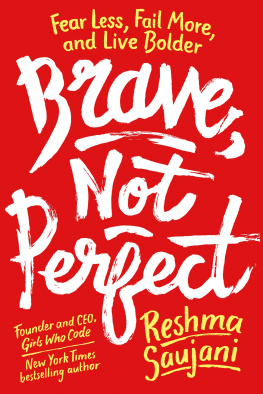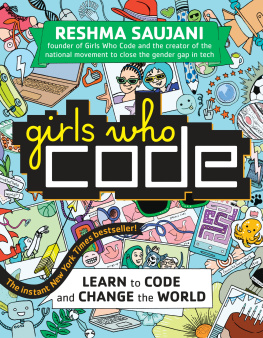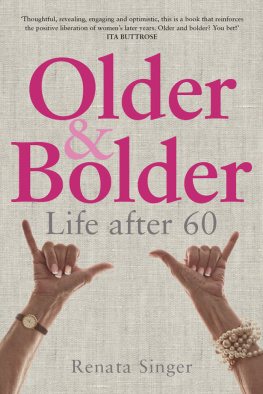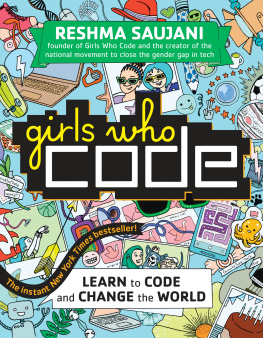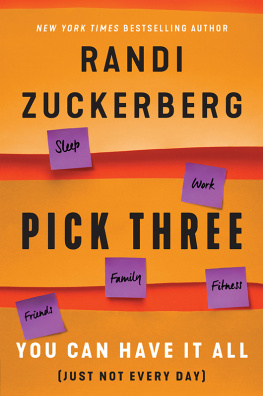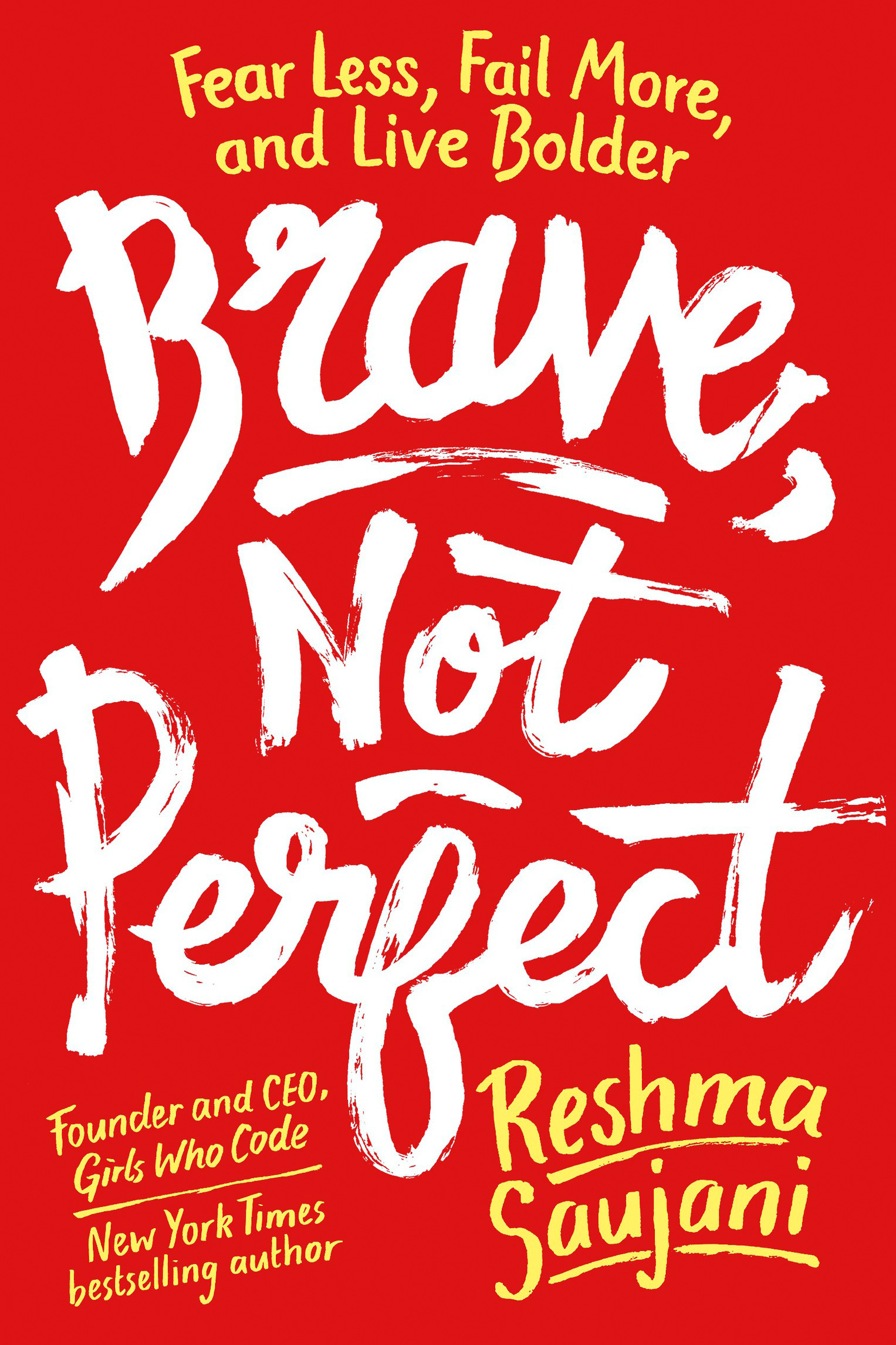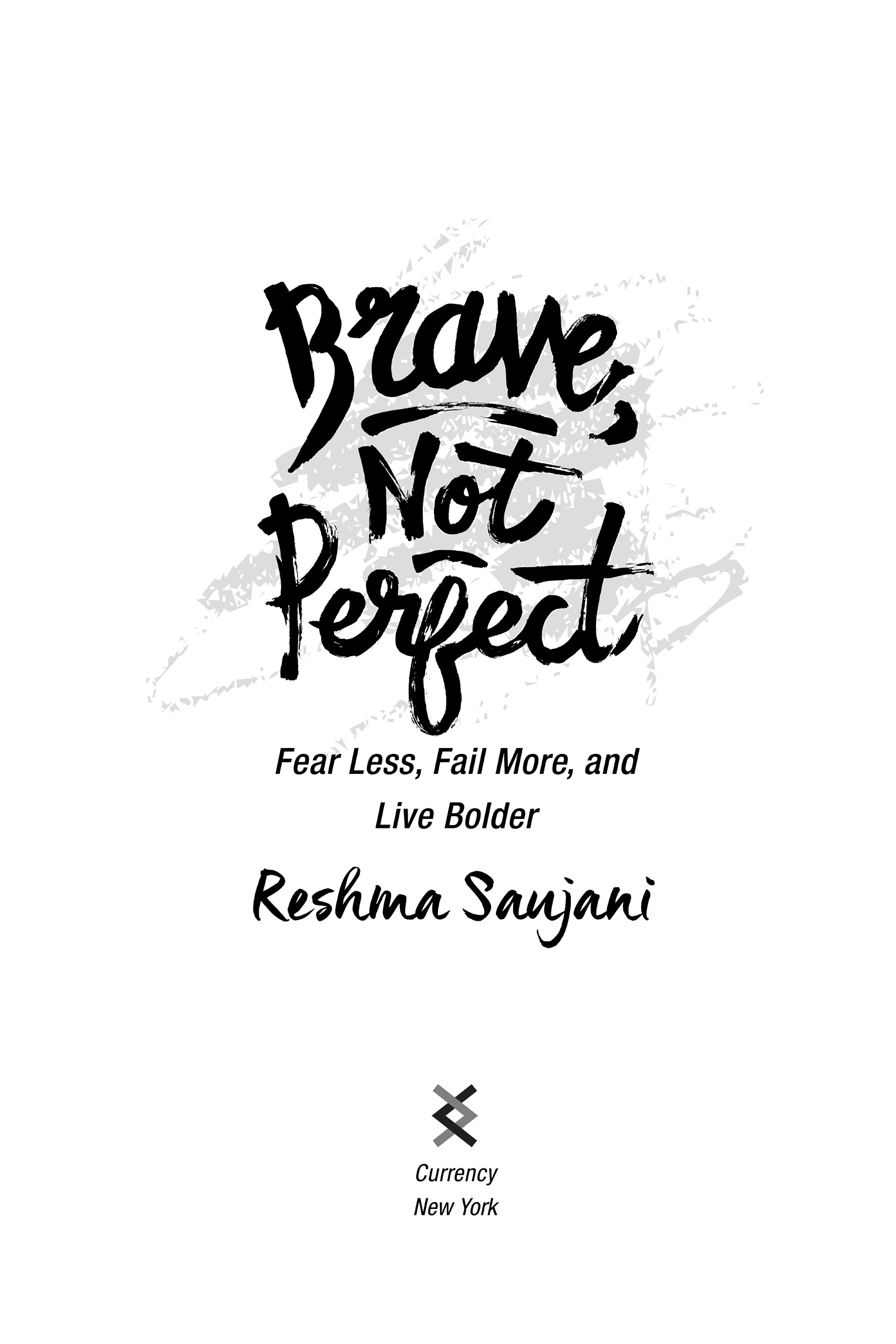All rights reserved.
Published in the United States by Currency, an imprint of the Crown Publishing Group, a division of Penguin Random House LLC, New York.
CURRENCY and its colophon are trademarks of Penguin Random House LLC.
Names: Saujani, Reshma, author.
Title: Brave, not perfect : fear less, fail more, and live bolder / Reshma Saujani.
Description: 1 Edition. | New York : Currency, 2019. | Includes bibliographical references and index.
Subjects: LCSH: WomenPsychology. | GirlsPsychology. | Self-esteem in women. | Leadership in women. | BISAC: SELF-HELP / Personal Growth / Success. | SOCIAL SCIENCE / Womens Studies.
Classification: LCC HQ1206 .S278 2019 | DDC 155.3/33dc23 LC record available at https://lccn.loc.gov/2018017150
You are braver than you know.
Introduction
Daring the Unthinkable
In 2010, I did the unthinkable. At the age of thirty-three, never having held an elected position, I ran for US Congress.
Up until then, even though it had been my dream from the time I was thirteen years old to run for public office and effect real change, I had stayed safely tucked behind the scenes of politics. By day, I worked long, grueling hours in a big-name investment firma high-paying, glamorous job that I hated but stayed in because it was what I thought I was supposed to be doing. At night and in every spare moment on weekends, I worked as a fund-raiser and organizer; these were all valuable contributions that had impact, but in my heart, I wanted to play big and do big things.
With every passing day, I became more and more miserable in my job, until I reached a moment of deep despair when I knew something needed to change. That was when I heard a whisper in the New York political community that the sitting congresswoman in my district was going to vacate her seat after eighteen years to run for Senate. I knew this was my opening. I met with a few key people to ask what they thought, and everyone said enthusiastically that I should go for it. I knew how to raise money, I had good policy ideas, I had a good background story; although I had no experience personally running for office, the rest was there. For the first time in as long as I could remember, I felt fired up. I was finally heading toward the life of public service Id always dreamed about, and there was no stopping me.
Then it happened. The congresswoman decided not to vacate her seat, which meant I would need to run against her if I wanted it. Suddenly, all the people whod supported me and said go for it were saying, Oh, no, noyou cant run against her. She was a venerable insider, a force to be reckoned with, and they said I didnt stand a chance. Not only did I lose the enthusiastic support of the female party elitethey outright told me it wasnt my turn and demanded that I back down.
But by that point, I was in too deep to give up. Here was my dream, just inches within reach. I wanted thisway too much to turn and run away. Believe me, there were plenty of moments that I thought to myself, I must be nuts. But I went for it anyway. I knew this would be my one shot and that Id regret it for the rest of my life if I didnt take it.
To my surpriseand the surprise of a lot of other peoplemy race caught a lot of positive attention. Here I was, a young South Asian upstart who had never held public office, but people were listening, the campaign donations were flowing in; I was even endorsed by the New York Observer and the Daily News. I went from tentatively hopeful to confident I would win after being featured on the cover of two national newspapers, and having CNBC tout my race as one of the hottest in the country.
But when push came to shove, it turned out that voters cared a lot more about my lack of experience than anyone thought. I didnt just lose; I got clobbered, winning just 19 percent of the vote to my opponents 81.
Whats remarkable about this story isnt that I ran for Congress. Or how stunningly and spectacularly I ended up losing, or even how I picked myself back up after such a public and humiliating defeat. What makes this story worth telling is the fact that when I ran for public office at the age of thirty-three, it was the first time in my entire adult life that I had done something truly brave.
If you looked at my pedigree up until that pointYale Law School, followed by a string of prestigious jobs in the corporate worldyou probably would think I was a gutsy go-getter. But being a go-getter and being gutsy arent necessarily the same. It was the drive to cultivate the perfect rsum that got me into Yale Law School after being rejected by them a whopping three times, not bravery. It wasnt genuine passion for the law or big business that compelled me to go after a job at a top-five law firm and then a premier financial assets management firm; it was the desire to please my immigrant father and fulfill his dreams for me. From the time I was a little girl, I had always set my sights on being the best, and every move I made was an effort to make me appear smart and competent and in turn open doors to other positions that would make me appear smart and competent. I made all these choices to build the perfect me, because I believed that would lead to the perfect life.
Despite how things looked from the outside, none of my life choices up until that point were truly brave for one simple reason: there was nothing on the line. This was the first time I was going off-script, doing something that truly mattered to me, in a deeply personal way. It was the first time I had gone for something even though I wasnt 100 percent confident I could succeed and stood to lose far more than just the election if I failed. I could lose my dignity, my reputation, and my self-confidence. It could hurt, big-time. Could I recover from that?
Im not alone in having spent my adult life only pursuing positions or projects I knew Id ace. So many women stick to doing only the things at which they excel, rarely going beyond what makes them feel confident and comfortable. I hear this over and over from the thousands of women I meet around the country, regardless of their race, age, or economic circumstances. I heard it from the twenty-four-year-old dog walker I chatted with at Starbucks who had a fantastic idea for revolutionizing her service but was convinced she could never do it because shes bad at business, and from the fifty-eight-year-old magazine editor I sat next to at a political fundraiser who told me she is miles past burned out and unhappy but wont leave her job, even though she can financially afford to. Why? Because, she says with a shrug, Its what Im good at. As CEO of the nonprofit Girls Who Code I see it in my young female employees who dont volunteer for projects in areas where they dont have prior experience, while the men jump hard and fast into unfamiliar territory without worrying one iota about failing or looking foolish.

